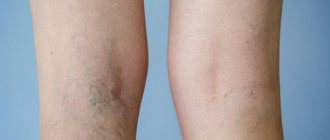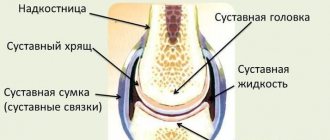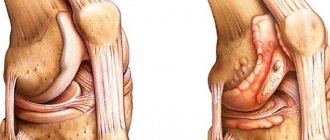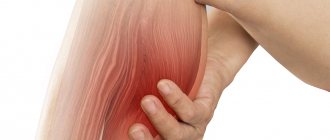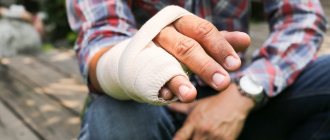Are all diseases caused by nerves? Is it possible to get sick due to “bad” emotions? What is a psychosomatic disorder? These and many other questions from the Challenger magazine are answered by Anton Rodionov, Candidate of Medical Sciences, cardiologist of the highest category, Associate Professor of the Department of Faculty Therapy of the Faculty of Medicine of the Federal State Autonomous Educational Institution of Higher Education First Moscow State Medical University named after I.M. Sechenov.
— In the 80-90s of the last century, a very famous psychologist, Professor Yu. M. Orlov, worked at our institute (First Moscow State Medical University named after I.M. Sechenov. - Ed.). He belonged to the theory of “sanogenic thinking”. Its meaning boiled down to the fact that if you think correctly, cultivate good emotions and fight bad ones, you can prevent many diseases. It must be admitted that for the fragile minds of young doctors, his theory looked very convincing...
Can emotions affect health? Definitely yes. To be a reason - no. Negative emotions activate the sympathetic nervous system, which in turn leads to increased blood pressure, increased heart rate and vasospasm. Everyone knows the stories when, against the background of, for example, fear or anger, people suffered heart attacks and strokes. I repeat: emotion in this case is not the cause of the disease, but only a provoking factor, a trigger.
In some cases, a negative emotion, of course, can become a cause of illness. For example, if you hit a wall with your fist out of anger, you can break your arm. Here is a very clear cause-and-effect relationship. By the way, we must not forget about the existence of an inverse relationship. Often the cause of negative emotions is chronic physical suffering. Remember Baba Yaga with a bone leg - perhaps she would have been a very sweet old lady if not for chronic pain in the hip joint...
“All diseases are caused by nerves” – a myth?
It's not even a myth, it's just an old student joke. The full quote is: “ All diseases are from nerves, and only five are from love ” (referring to the five classic venereal diseases). However, chronic stress is indeed a proven risk factor for the development of at least cardiovascular diseases. Several years ago, using positron emission tomography (a high-precision study that allows one to study metabolic processes in various tissues), scientists identified mechanisms that transform stress into chronic inflammation, which, in turn, serves as a key mechanism for the development of atherosclerosis.
“However, I repeat again and again: stress is not the cause of disease, but one of the risk factors that works only in conjunction with other factors, primarily genetic.
Completion
Today we learned about psychosomatics when knees hurt. In conclusion, I will write a piece of advice that I really liked - put your loved ones on your lap, and you have them - open your heart. Let your children, grandchildren, and loved ones laugh on your lap. Discover the joy of life. Everything is fine and you have nothing more to fight with.
Take care of your knees!
Knee pain brings a lot of inconvenience, especially when the disease becomes chronic. Moreover, it can lead to disability. The article will be very useful for those who find it painful to bend their knees, or who struggle with arthritis or inflammation .
The knees are one of the important parts of the human musculoskeletal system. Thanks to it, a person can walk, run, and perform strength training.
Therefore, knee joint disease leads to serious limitations and consequences. For example, with arthritis, pain occurs, the knee swells, freedom of movement disappears, and general health worsens.
The disease is dangerous in its course, as it often becomes chronic, which entails problems with recovery. If you do not pay enough attention to this topic, the disease can lead to disability.
Psychosomatic disorders: what are the causes and mechanisms of their occurrence?
Psychosomatic diseases are a group of diseases that are manifested by bodily suffering (that is, symptoms of diseases of the internal organs), but their main cause still lies in problems with the nervous system. These include a whole range of gastrointestinal disorders (functional gastric dyspepsia and irritable bowel syndrome), fibromyalgia (a specific pain syndrome in the projection of the joints), hyperventilation syndrome (a feeling of lack of oxygen and the need for rapid breathing) and much more.
I will explain how mental suffering and somatic symptoms are related to each other using the example of the most common complaint with which patients come to a cardiologist - a feeling of rapid heartbeat. Tachycardia (fast pulse) normally occurs when you need to respond to an external stimulus, for example, to run away from danger. In this situation, the muscles need more blood, therefore, the heart must increase its contraction frequency. But when the danger passes, the pulse returns to normal. A patient with a neurotic disorder is outwardly calm, no one is chasing him, he does not need to catch up with anyone, but the brain gives a signal: “You are in danger, run away!” As a result, the sympathetic nervous system is activated, blood pressure rises and heart rate increases. The patient feels unwell... In this case, treating tachycardia as a separate symptom is at least absurd - it is necessary to treat the neurotic disease itself, and such patients should be treated not by a cardiologist, but by a psychiatrist or psychotherapist.
As for child psychosomatics, I’ll tell you another story. Recently a young woman came to an appointment. She looked very worried and kept trying to ask me about her husband’s health, although, in my opinion, her husband could well have come to the appointment himself. During the conversation, it turned out that the husband (a man who works hard and earns well) constantly yells at his wife and child at home, while still successfully manipulating his high blood pressure, but does not want to be treated. At the end of our meeting, the woman asked if I knew of a good neurologist, a specialist in childhood tics... Should I continue the story? In my opinion, you don’t have to be Dr. House to understand a simple thing: most transient neurological and neurotic symptoms in children are a problem with the parents.
Knee pain as a sign of detachment from family
Another reason for knee disease is distance from your family. Psychologists mean by this that a person does not want to be involved in his family.
Something doesn’t suit him there, maybe some event became fatal, or the relationship between his parents.
Sometimes a person feels disgust and hostility towards someone close to him and thereby also moves away, not wanting to have anything to do with him. There can be many reasons for such a reaction.
How does this affect the knees? Practitioners of psychosomatics explain it this way: knees are a symbol of worship (kneeling in front of someone important), veneration .
Accordingly, if a person refuses to accept his family or an individual character, then this resistance goes into the body, namely into the knees.
What is the “Chicago Seven” and how relevant is such a classification today?
I don’t really need classifications of psychosomatic disorders in my daily work, and I first learned about the “Chicago Seven” thanks to this question. I read it and was horrified. Can anyone really seriously consider them in the 21st century as “diseases of unreacted emotions”! I will list these seven diseases indicating their true causes:
- Arterial hypertension is a disease based on a genetic predisposition, which is caused by dozens of additional factors (smoking, excess weight, salt abuse, physical inactivity, increased sugar and cholesterol levels, and so on). Stress is only one of the risk factors, but far from the main one.
- Peptic ulcer of the stomach and duodenum is a disease whose cause was well studied at the end of the 20th century. This is a microorganism called Helicobacter Pylori. Yes, acute “stress” ulcers have been described, but that’s a completely different story.
- Inflammatory bowel diseases (ulcerative colitis and Crohn's disease) are a group of inflammatory autoimmune diseases with a genetic predisposition.
- Neurodermatitis (atopic dermatitis) is a disease that has a genetic predisposition. A stress factor can only in some cases cause an exacerbation.
- Bronchial asthma is a chronic inflammatory disease with a clear genetic predisposition. Sometimes stress can contribute to an exacerbation, and sometimes vice versa - stimulation of the sympathetic nervous system leads to dilation of the bronchi.
- Thyrotoxicosis (hyperfunction of the thyroid gland) is a classic autoimmune disease, which is based on the production of antibodies to the tissues of the thyroid gland. Here, would-be psychologists generally confuse cause and effect. Thyrotoxicosis greatly changes a person's character - he becomes whiny, hot-tempered, and nervous. After thyrotoxicosis is cured, mental manifestations completely disappear.
- Rheumatoid arthritis is a disease of unknown nature (the connection between genetic and infectious factors is being discussed). However, stress definitely has nothing to do with it.
Important Tips
Any ailment will require close study; psychosomatics, which may well cause knee pain, should not be ignored. The problem may be associated with difficulties in bending the joint, the appearance of acute pain, loss of mobility, etc. After examining the patient, the doctor must give recommendations. To recover, you will need:
- Deal with your emotions by correctly sorting them into “shelves.” You have to do a general “cleaning of the soul”, distribute your emotions into anger, resentment, despair - all the negativity that was in the recent past or stretches from afar. The most effective way is to write down emotions on a piece of paper that will need to be destroyed.
- Try to look at the world, especially your immediate environment, differently. If we are talking about relatives and friends, then it makes sense to increase loyalty, leave grievances in the past, and have a heart-to-heart talk. Some grievances come from childhood, and they can have a negative impact in the present. Don't let negativity ruin your life.
To accept yourself, and also to leave grief, stress, sadness and anger in the past, you need to understand that these are not qualities of the highest order. One should strive to become a rational person who is above base emotions.
Constant work on yourself, even under the supervision of a doctor, will lead to spiritual recovery, and then to physical recovery. References:
- https://masokol.ru/articles/psihosomatika-bol-v-kolenyah-diagnostika-po-liz-burbo-chast-2/
- https://slavicmagia.blogspot.com/2019/03/blog-post_93.html
- https://cleverday.ru/pochemu-bolyat-koleni/
- https://zdorowoetelo.ru/psixosomatika-kolen/
- https://mysustavy.ru/psihosomaticheskie-prichiny-boley-v-kolenyah-i-pomosch-pri-takom-sostoyanii/
How are psychosomatic disorders diagnosed?
Patients with psychosomatic disorders can visit doctors of any specialty. For some, illnesses manifest as unmotivated shortness of breath and palpitations, for others, nausea, vomiting and diarrhea, and for others, pain syndromes.
— The main diagnostic criterion is examination, often repeated, which does not detect any signs of an organic disease. It is this fact that should suggest the need for consultation with a psychiatrist or psychotherapist.
The basis of diagnosis is a conversation with the patient. Just based on how the patient presents his complaints, one can think about the presence of psychosomatic disorders. If the doctor has sufficient time to clarify the circumstances associated with the onset or exacerbation of the disease, if he finds accurate words to clarify psychotraumatic situations, then the picture of the disease will begin to emerge. As I already said, the dissociation between complaints and the absence of organic pathology is an important argument in favor of “psychosomatics”. Of course, a reasonable amount of additional examination is always necessary, but it should not be excessive.
Let me give you an example of one of the classic psychosomatic diseases - irritable bowel syndrome (IBS). In Russia, they believe that in order to establish a diagnosis, it is necessary to do a colonoscopy - a difficult and expensive endoscopic examination of the large intestine. All over the world they think differently. If long-term symptoms of intestinal discomfort (diarrhea or constipation, bloating, etc.) are not accompanied by the presence of so-called “red flags” (weight loss, blood in the stool, inflammatory changes in blood tests, late age of onset of the disease and the presence of cancer in close relatives ), then there is no point in tormenting the patient with such a difficult procedure as a colonoscopy - the diagnosis of IBS is very likely. How many years pass from a patient presenting with a psychosomatic disorder to receiving a correct diagnosis? It's not always the same. It seems to me that if you build communication with the patient correctly, it is not at all difficult. But we are well trained for this. The fact is that our now deceased teacher, former director of the First Medical Faculty Therapy Clinic (now Sechenov University), Professor V.I. Makolkin, paid great attention to the study of psychosomatic pathology, as a result of which a small psychosomatic center was actually created on the basis of the clinic. The clinic staff are quite well versed in this kind of pathology, in addition, we are supported by a team of several psychiatrists. Sometimes it happens that years pass from the onset of the disease to receiving professional help. It's difficult to say what this is connected with. Most likely, because colleagues “do not see” psychosomatics or are embarrassed to send patients to a psychiatrist, fearing that the patients will misunderstand them.
Recommendations and tips on how to cope with knee joint disease
Any illness related to the knees requires close attention. Whether it's arthritis or just difficulty bending with occasional pain. One way or another, it would be right to approach this with full responsibility.
Below are some basic tips and tricks for recovery:
- It is necessary to “clean up negative emotions” . Identify all the negatives that have accumulated, analyze the past and present. The most effective method is to write down emotions on paper and then tear them up.
- It is important to increase the level of loyalty to your loved ones and their families . If a person is not happy with something in his family system, he needs to evaluate how it really affects him NOW. Very often, grievances and contempt stem from childhood, making it difficult to objectively perceive reality. Most likely, the situation has already changed, and people have become different, but childhood memories overshadow this.
- Self-pacification . Anyone will agree that pride and selfishness are not qualities of the highest quality. It is much better to be a rational person, flexible and capable of dialogue. It is these traits that need to be developed if there are problems with the knees. By giving flexibility to thinking, a person automatically increases it in the knee joints.
How to treat psychosomatics?
It all depends on the situation; The concept of “psychosomatic disorders” is too broad. In mild cases, specific treatment is not required at all; a detailed conversation between the doctor and the patient and an explanation of the essence of what is happening is sufficient. The fact is that sometimes the patient is worried not so much by the symptoms themselves as by the unknown and suspicion of serious organic diseases. If you explain that behind the “feeling of incomplete inspiration” or “tingling in the heart” there are no organic diseases of the heart and lungs, this will be quite satisfactory for many patients.
In some cases, an internist (therapist, cardiologist, gastroenterologist and others) can independently prescribe psychotropic therapy, if, of course, he knows how to do this. For example, a qualified gastroenterologist can and should himself prescribe antidepressants to patients with functional diseases of the gastrointestinal tract, without resorting to the help of psychiatrists. Why do gastroenterology patients need antidepressants? They are needed to break the pathological connection between signals in the brain and symptoms from the gastrointestinal tract. By the way, antidepressants have long ceased to be specific drugs for the treatment of depression. They are also successfully used in the treatment of certain pain syndromes.
If the internist feels that the patient needs serious combination therapy, then it is better to involve a psychiatrist in the treatment, since psychopharmacology is quite complex and the arsenal of drugs is diverse. It is advisable to consult not just with a psychiatrist from the district dispensary, but with a specialist who has experience working specifically with psychosomatic patients.
Psychotherapy (that is, talking therapy) can be very helpful for many patients with psychosomatic disorders. There are only two disadvantages: it is expensive and takes a long time. A contraindication to psychotherapy is symptoms of a “major” mental illness (delusional disorders, hallucinations), however, this already goes beyond the scope of the “psychosomatics” topic.
But what the patient definitely does not need is the appearance of treatment using dummies: vitamins, “restorative”, “metabolic”, “vascular” drugs and so on.
Features of the condition
A specialist will be able to understand why pain occurs in the right knee due to psychosomatics after interviewing the patient. The patient will have to tell the doctor how and when exactly the discomfort first appeared. Quite often, pain in the knees with psychosomatics is preceded by severe stress conditions. They become provocateurs of nervous breakdown, stress, and depression.
Doctors note that the localization of psychosomatic pain in the knees can also determine the characteristics of the situation experienced.
In this case, the complaining patient, who develops pain in the knee (right) due to psychosomatics, can suppress loved ones, subordinates, everyone around with his authority, his own opinion. This person is used to and loves to think about himself, offend everyone around him, impose his opinion, and attract excessive attention. Psychosomatics also explains the pain in the left knee as excessive and even painful pride, which the patient will have to cope with himself or with the help of a doctor.
But when the left knee hurts due to psychosomatics, we can talk about a person who is doubtful, nervous, unsure of himself, he is surrounded by fear wherever he goes.
What is mental hygiene and how can it help?
Perhaps mental hygiene can be a way to prevent such disorders, although it is not so simple. Here again it is appropriate to recall the theory of “sanogenic thinking” by Yu. M. Orlov. On my own behalf, I will add four positions that I try to follow myself (more about this in my book “Heart and Vascular Health”):
- limit negative information flow. Don't let the TV run in the background. It’s better to play recorded music or favorite movies;
- separate work from home. Get two phone numbers - for home and for work calls, turn off your work mobile phone at home, on weekends and on vacation;
- think about the most difficult event in your life. Maybe everything else isn't worth going crazy?
- The best way to get rid of accumulated fatigue and irritation is physical activity.
And one last thing. If you feel that something in life is going completely wrong and you can’t get out on your own, do not hesitate to contact specialists in the field of psychiatry and psychotherapy. Modern psychiatry has come a long way compared to the classic image of it in the movie One Flew Over the Cuckoo's Nest.
If you want to competently use all the possibilities of modern medicine, and also not become a victim of questionable treatment and excessive diagnostics, books from the course of the “Dr. Rodionov Academy” will help you. All the authors of the series are not only practicing doctors and specialists, but also our permanent experts (for which we thank them very much).
Photo: shutterstock.com
Link to publication: the-challenger.ru
Which doctor should I contact?
If for some unknown reason your right knee hurts, psychosomatics can provoke unpleasant sensations. In this case, the therapist, after conducting a series of studies and diagnostics, may send the patient to another specialist to identify internal personal reasons.
You should contact a psychotherapist, since the problem of psychosomatics, when the legs hurt in the knees, belongs to the category of minor psychiatry.
After an examination and personal communication, a doctor can diagnose a personality neurosis, which, due to the general condition, is localized in only one organ. To completely forget about the disease, you should take a comprehensive approach to solving the problem and choose the best doctor. He will be able to correctly recognize the symptoms, find the cause, and cure the disease.
Left and right knee, psychosomatic pathology, and its healing using the methods of Spiritual Integration.
Methods of Spiritual Integration are gaining more and more popularity among progressive individuals. After all, this author’s system of a successful, progressive psychologist of our time, candidate of psychological sciences, Konstantin Dovlatov, allows everyone in a short time to independently determine the hidden causes of diseases and problems. And most importantly, not only find out, but also eliminate them, freeing up a colossal resource of mental strength to radically improve your health and life in general. And as a result, get rid of problems, failures, diseases, even “incurable” ones, including pain in the knees, psychosomatics and the physiology of the disease.
The name of the system explains that the work to gain one’s own integrity occurs at the level of subtle, spiritual plans. Developing the skills and fundamentals of this system is available to everyone.
One of the unique techniques in Spiritual Integration is reintegration , which allows one to clarify and clarify various obstacles that hinder positive metamorphoses in the life of a student.
Master reintegration techniques,
In our time, you can study the basic basis of Spiritual Integration both through live training and through online training.
Ways to Heal
Based on the psychosomatic reasons discussed above, to heal the knees, it is necessary to abandon and free yourself from the listed negative thoughts, emotions and qualities.
How can you get rid of them if you can’t throw them out and you can’t suppress them? There are many ways to get rid of it.
Physical methods: from unproductive pillow beating to productive use of strong energy of anger in any work (for example, doing unloved housework, housework, etc.)
Ways to work with your inner world: raising consciousness and harmonizing your emotional sphere.
Raising consciousness allows a person to rise above selfishness, pettiness, pride and other qualities, since a person understands that life is a Divine school, which, through the people around him and with the help of current events, helps him understand Divine laws and develop Divine qualities.
And, if this is so, then what is the point of being offended and angry? And to whom? To the life that we create ourselves with our thoughts, emotions, beliefs and actions? Life has only one goal - the spiritual and moral development and improvement of man as a particle of God.
And everything that surrounds a person is designed to develop him, especially troubles and illnesses. How else can a person pay attention to his undivine qualities? For example, roughly speaking, if a person is inflexible, callous - get hard joints, heartless - listen to your aching heart, etc.
These are the forced measures our body comes to for the sake of the development of its owner – HUMAN.
The question arises: is the owner ready to sacrifice his negativity to heal his body?
Lada
Did you know that the largest joint in the body is the knee joint ?
A large number of tendons and other ligaments are involved in the formation of its mobility. But each of them can potentially be damaged.
Content:
